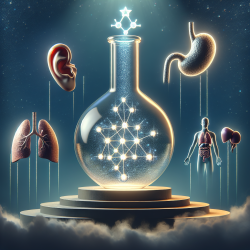Cisplatin is a cornerstone in cancer treatment, renowned for its efficacy against solid tumors. However, its use comes with a significant downside: it often leads to irreversible end-organ damage, affecting hearing, liver, and kidney functions. Recent research has shed light on a promising solution—acetophenone compounds—that could mitigate these adverse effects without compromising the drug's cancer-fighting capabilities.
The Problem with Cisplatin
Cisplatin is effective due to its ability to disrupt DNA in cancer cells, but this mechanism also generates excessive reactive oxygen species (ROS), leading to oxidative stress and organ damage. Patients undergoing cisplatin therapy frequently experience ototoxicity (hearing loss), hepatotoxicity (liver damage), and nephrotoxicity (kidney damage). These side effects significantly impact the quality of life and limit the drug's use.
Introducing Acetophenones: NAHA and Gavinol
The study conducted by researchers at Albert Einstein College of Medicine introduces two novel acetophenone compounds—4-N-acetyl-2,6-dihydroxyacetaphenone (NAHA) and N-(4-acetyl-3,5-dihydroxyphenyl)-2-oxocytclopentane-1-carboxamide (Gavinol). These compounds act as nucleophilic surrogates that interact with cisplatin's platinum core, preventing the formation of harmful adducts without affecting its therapeutic action.
Key Findings from the Research
- Ototoxicity Prevention: Acetophenones preserved cochlear function in rodent models, maintaining normal levels of distortion product otoacoustic emissions (DPOAEs).
- Hepatotoxicity Mitigation: The compounds significantly reduced serum alanine transaminase (ALT) levels, indicating protection against liver injury.
- Nephrotoxicity Reduction: NAHA and Gavinol lowered blood urea nitrogen (BUN) and creatinine levels, markers of kidney function impairment.
- Oxidative Stress Alleviation: The study showed decreased malondialdehyde (MDA) levels, a byproduct of lipid peroxidation and oxidative stress.
Implications for Practitioners
The introduction of acetophenones as protective agents opens new avenues for enhancing chemotherapy protocols. Practitioners can consider incorporating these compounds into treatment regimens to minimize side effects and improve patient outcomes. Moreover, this research encourages further exploration into other potential protective agents that could work synergistically with existing therapies.
The Path Forward
While the results are promising, further studies are needed to confirm these findings in clinical settings. Future research should focus on tumor-bearing models to ensure that acetophenones do not interfere with cisplatin's antineoplastic activity. Additionally, exploring different dosages and administration routes could optimize their protective effects.
The potential of acetophenones to transform chemotherapy by reducing toxicity while maintaining efficacy is an exciting development. As researchers continue to explore these compounds, practitioners are encouraged to stay informed and consider how these advancements might be integrated into clinical practice.
To read the original research paper, please follow this Acetophenone protection against cisplatin-induced end-organ damage.










